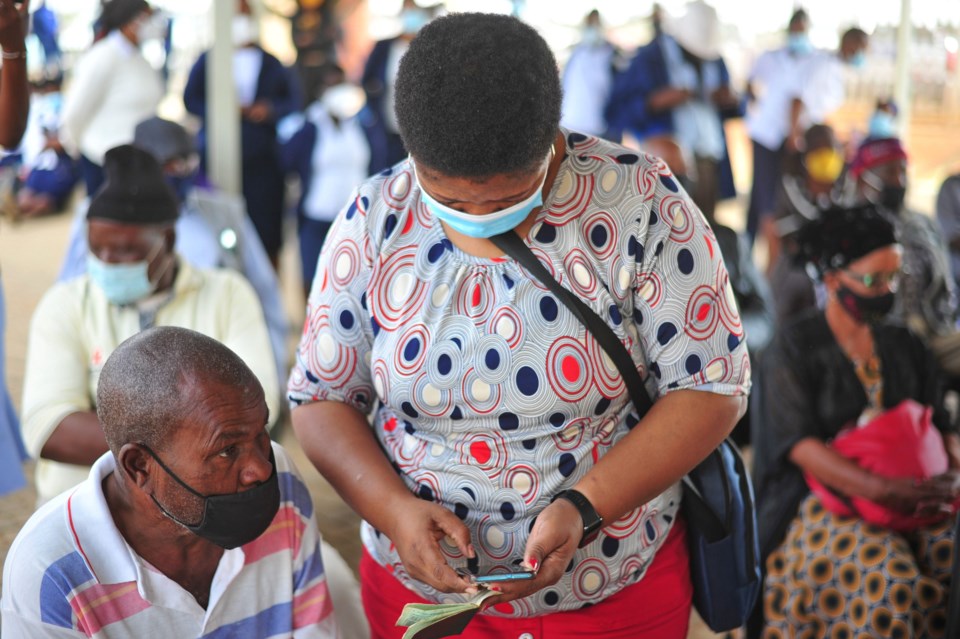British Columbians are rightly anxious about the impact of COVID-19 on their Christmas holiday plans, due to the new fast-spreading Omicron variant.
But as they source out booster doses, vaccinate their kids, and stock up on masks, Provincial Health Officer Dr. Bonnie Henry is taking pains to point out the real problem - whether we want to hear it or not.
“Looking at the way this virus has mutated and changed over time, what we need to do is focus on immunizing other parts of the world,” she said Tuesday.
“It’s where this virus transmits rapidly amongst large numbers of people, where these unusual mutations or mixings or assortments come up, and it's because we have low levels of protection through immunization through vaccination in many parts of the world that we all have to continue to be on our guard.”
Put simply: No matter how much the richer nations focus on booster doses, we’re all going to be stuck in a cycle of worse and worse variant outbreaks until we start helping the poorer nations of the world get the original vaccinations we now take for granted.
Case in point, South Africa, the origin of the Omicron variant. The country has a vaccination rate of only 25 per cent. It’s now being taken over and driven by the Omicron variant, with what some experts have called “a near vertical spike” in COVID-19 cases.
Canada’s vaccination rate is 76 per cent, almost three times that of South Africa.
That disparity plays out again and again - Japan, Spain, Australia, Belgium, Qatar and other prosperous nations have vaccination rates in the high 70-percents, whereas Pakistan, Palestine, Georgia, Bangladesh, Myanmar, Ukraine and others are in the 20s.
Enormous population centres, like India and Egypt, have abysmal rates of 34 per cent and 16 per cent respectively.
Worldwide, wealthy countries are vaccinated at an average of 65 per cent, compared to low-income countries at only eight per cent, estimates the World Health Organization.
“Vaccine equity is the other important part of this globally,” said Henry. “And when you do that globally, the risk of having another mutation that’s different or escapes or spreads more quickly is going to go down dramatically.
“That’s what our focus needs to be.”
There are several problems.
In some cases, wealthy countries, including Canada, threw around enormous sums of cash to secure early vaccines and a stockpile that would protect its citizens. Now, they are so far ahead that they are using up vaccines for third dose booster shots to maximize protection.
The demand from rich countries is impacting the ability of poorer nations to access aid programs designed to help them afford vaccines.
Canada contributes to the COVAX initiative, where wealthy countries buy vaccines for nations in need, but the program has failed to meet targets this year due to pressure from vaccine factories to fulfil orders placed by rich countries that offer to pay more for the limited supply, the CBC has reported.
This creates a perverse cycle, where poorer countries unable to access limited vaccines watch COVID run rampant through their population, generating new variants than then eventually spread to richer countries, who in a panic stockpile even more vaccine, which in turn shuts out poorer countries that then produce more variants of the virus.
There are also serious issues of vaccine-hesitancy in many countries, meaning even as the international community ramps up vaccine deliveries they can still go to waste due to fear of side effects and anti-science rhetoric. Combined with supply chain problems around freezing and refrigeration temperatures in some countries, and you have a mess of issues.
Still, they are solvable problems with enough international help and resources.
Because the solution seems clear: We have to look beyond our own well-being, to help others.
If we can’t do it for purely humanitarian reasons, and because it’s the right thing to do, then we need to think of it pragmatically: A truly global pandemic will never be over until we help the rest of the world get vaccinated.
Rob Shaw has spent more than 13 years covering BC politics, now reporting for CHEK News and writing for The Orca. He is the co-author of the national best-selling book A Matter of Confidence, and a regular guest on CBC Radio.



